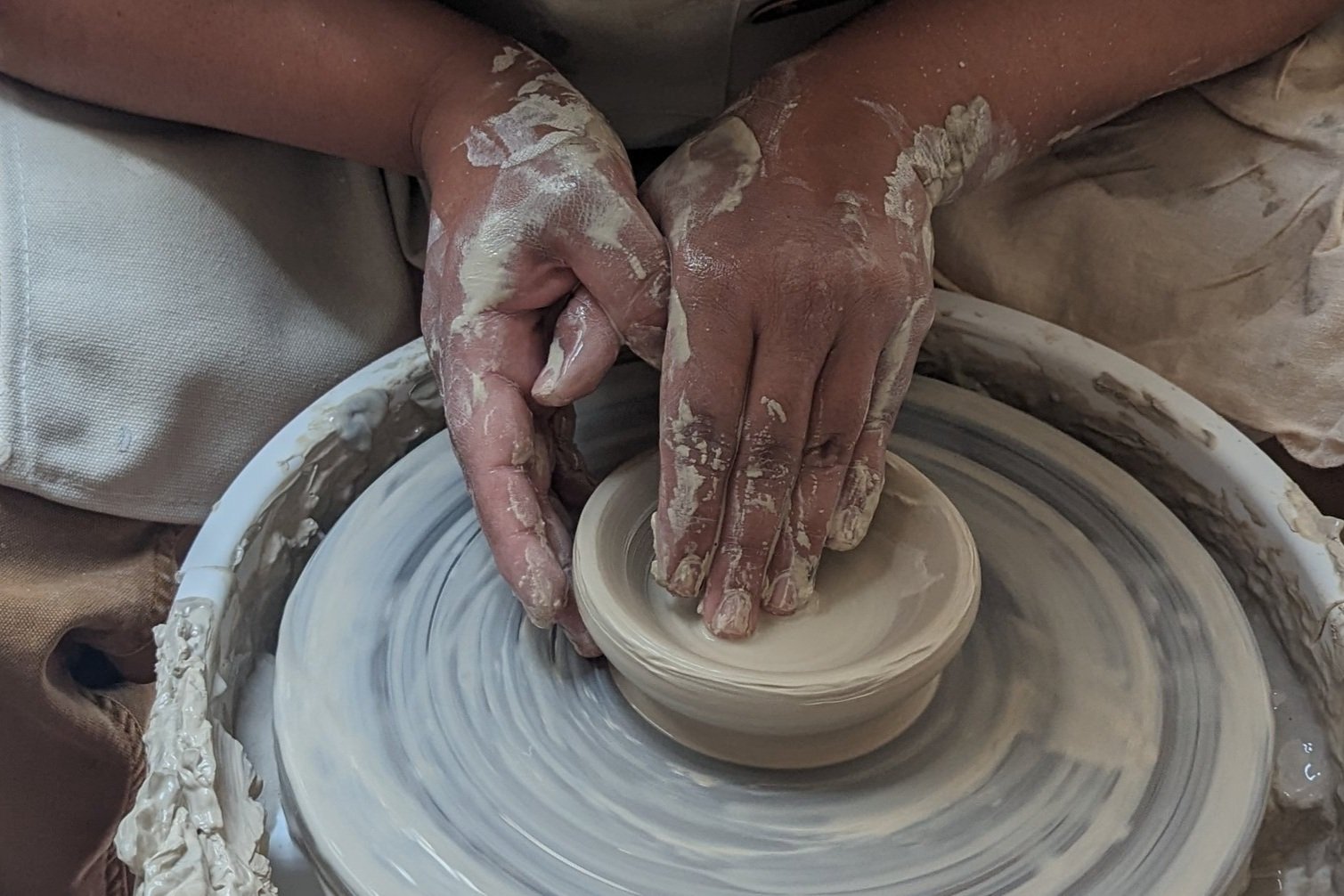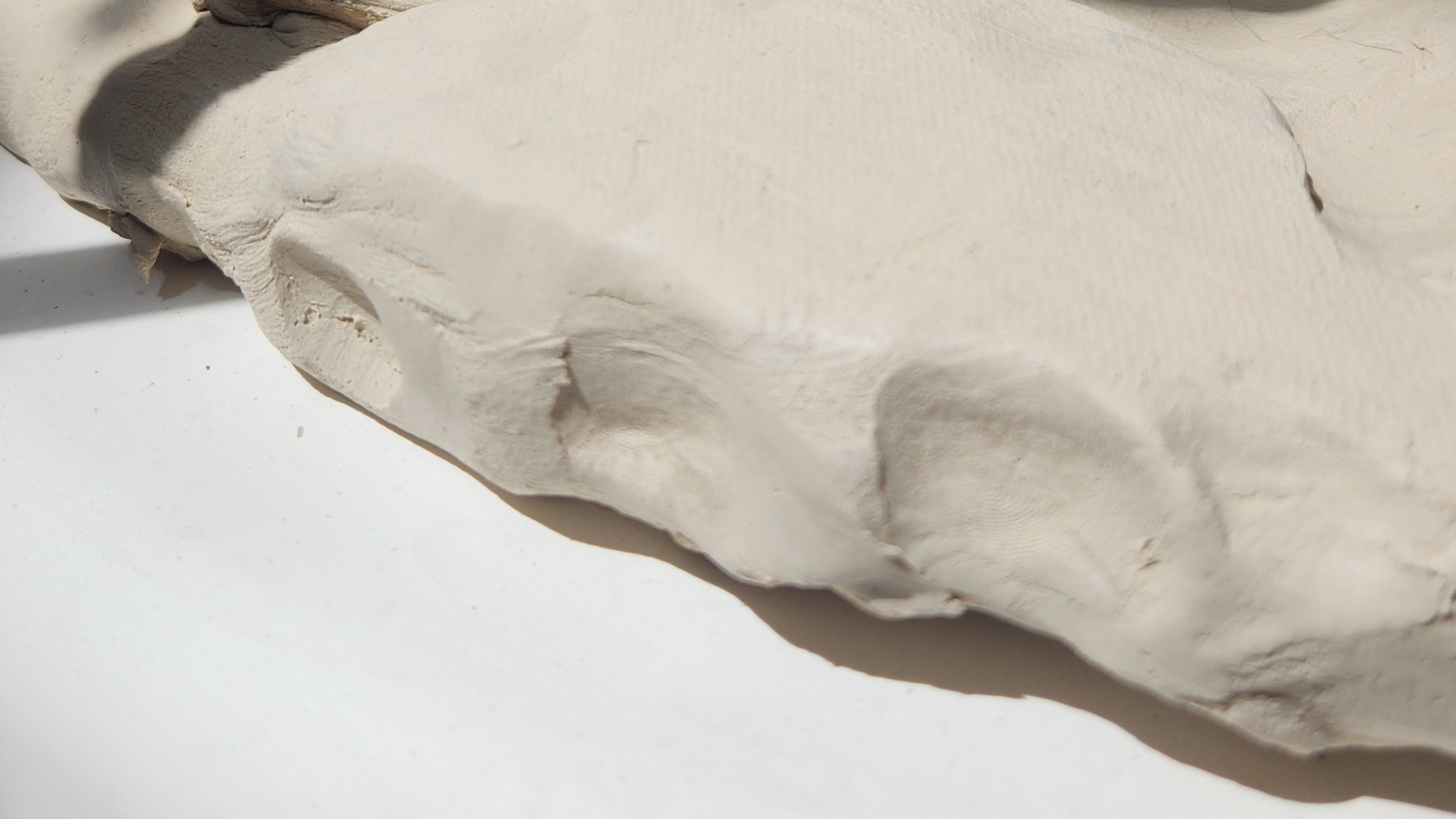Clay helps you deprogram // Keep your hobbies
I’ve been running beginner pottery classes in an intimate setting for about three years now, and I spend a lot of time and energy preparing for class and reflecting on my students’ experiences. By checking in with you throughout the process (How is this feeling? What do you think? How was that experience for you?) I have learned a lot – about teaching, but also about our society’s impact on the spirit.
These experiences have taught me that working with clay in motion is an opportunity to deprogram norms that have been put in place by media, government and white supremacy culture to create obedient sources of labor.
Mainstream norms in the U.S. influence choices we make, how we feel about ourselves and how we react to new experiences.
Norms a beginner clay (or any art) classroom can challenge:
I need to be productive to be worthy.
I have to be good, or the best, at something to be worthy.
It’s shameful or embarrassing to make a mistake.
I need to learn quickly.
I need to manage my feelings and keep a cool head no matter what.
Taking a break, resting, or slowing down is lazy, weak or a character flaw.
People in charge know all the answers.
There’s a right way to do this and if I just figure that out, I’ll be okay.
Push through discomfort: no pain, no gain.
The beauty of clay is that it is truthful. We cannot cover up a mistake (a thin wall, an off-center form). We cannot push it beyond its capabilities and expect results. Clay teaches me how to take care of myself – how to slow down and tend to my needs, how to forgive and grow from mistakes. This is a lifelong practice, and 20 years later clay is still teaching me.
Those norms are harmful: they encourage you to abandon your feelings and needs and produce at the expense of your spirit. Clay refuses, inviting you to get comfortable with new norms:
I need to be productive to be worthy. The process is worthwhile in and of itself.
I have to be good, or the best, at something to be worthy. The concept of “good” is subjective. By showing up and doing something you want to do, you are doing enough.
It’s shameful or embarrassing to make a mistake. Mistakes are evidence of bravery, and opportunities to learn, be creative and explore.
I need to learn quickly. Clay has taken millions of years to form, and the practice of pottery has existed for 20,000 years. Embrace this time scale: the time to learn from clay is infinite and ongoing and lifelong.
I need to manage my feelings and keep a cool head no matter what. Your feelings are allowed and are not inconveniencing or hurting anyone.
Taking a break, resting, or slowing down is lazy, weak or a character flaw. Slowing down makes space for you to be more present. It’s a sign of awareness and respect -for yourself, the material, the instructor and the space.
People in charge know all the answers. The instructor is not all-knowing – there is not one answer for every question.
There’s a right way to do this and I implement instructions, I’ll be okay. There are many ways to touch clay, and you’ll need to feel it out to find your own path and connection to it.
Push through discomfort: no pain, no gain. As soon as you notice discomfort, pause, observe and ask: what is happening?
Combating these norms and shifting the way you respond to the world, and yourself, takes time. This is why I ask nearly every visitor to Waveform: is there a physical activity or hobby that brings you joy? How do you feel when you do it? Does practicing it offer a different perspective than the norms at your job, in your household, in your community? Or does it feel connected and aligned?
I learn so much when people share what they love spending time doing. Hiking, Muay Thai, knitting, painting, gardening, cooking, puzzles, rock-climbing…
Whatever activities help you slow down and feel connected to yourself, find a way to make time for them – the energy you dedicate to those activities feeds your soul and has a powerful ripple effect.




